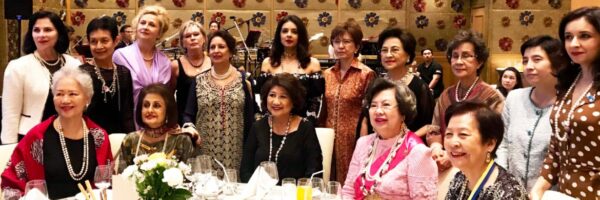
Do We “Get Up Ourselves”
Nobody gets to choose where they are born. Many foreigners living in Thailand “get up on themselves”. That is, through an accident of birth, education and an increased spending power, say, with new personal drivers, they turn into little dukes and duchesses. With the “me first” generation this can easily turn into an unearned sense of entitlement and an inappropriate escape into narcissism. Thailand has a wellbeing index of xyz.
French sociologist, Pierre Bourdieu, divided wealth into economic, social and cultural capital. With our degrees and the knowledge of travellers, our connections and savoir vivre, we are comparatively prosperous and can depend on a lot of social mobility. Many of the working Thais have had only basic education. They know nothing about business cycles or macroeconomics.
Their understanding of money is based on a monthly salary. Their social capital is based on friends and relatives. We are their personal connection with the international community (their source for obtaining international cultural capital – for example, the English language and other social norms). We can do a lot to improve the randomness of social inequalities in Thailand through our attitudes and behaviour.

How to improve your relations with the working Thais:
Always smile, be very polite and friendly.The Thais appreciate small gifts – fruit, confectionary – and any sign of generosity and consideration. Don’t think your life is secret. The security guards know everything about you. They love to gossip about you, so everyone has a reputation. Yours will gain through unknown friends and admirers where you live!
Expat Life – Social Capital
Thailand is a low wage economy and it there are plenty of opportunities for foreigners to “get up on themselves”. Getting up on yourself commonly occurs when you get a driver to take you around Bangkok. Suddenly, you are in the class of business gatherings and diplomatic parties. You are no longer a bookkeeper from Essex and are now an international management accountant heading for CEO. Pierre Bourdieu was a sociologist whose interest focused on social class and stratification along with inequality.
Groups can use cultural practices and symbols to distinguish themselves, both signalling and constituting their position in the social structure. In sociology there are three types of capital: economic capital, social capital and cultural capital.* Social capital is about who you know, how you can exert power and accumulate prestige through contacts – but it does not include what everyone knows about you.
The Thais love to gossip and, in the local community, every farang has a reputation establishing their position in an informal hierarchy. Be not too assured. The local Thais know all about you. They know your family circumstances, what you own, what you keep in your apartment, your drinking habits, who you argue with and who is indulging in part-time adultery. Being too up on yourself can involve not bothering to learn basic Thai, becoming increasingly selective about who comes to dinner and being rude and dismissive towards tradespeople.
So give a decent tip to Thai waitresses – at least 20B per diner (not just yourself). Make sure she gets it and it does not disappear into a box. Never show anger or impatience when things go wrong. The Thais are conscientious managers and love to solve problems. You will improve your social capital considerably if you tip well, make small gifts to the security man, smile at people and try out basic Thai in short conversations. This will also indirectly improve your nations standing in international affairs. So “getting up on yourself” may feel good while it lasts but it does little to improve your reputation in the local community. Try some egalitarian conduct – it will pay dividends and boost your social capital on all levels.




